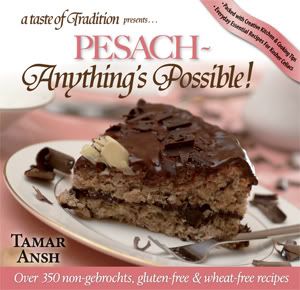Some people decry every new Kosher thing, feeling that it drags us down spiritually, despite the kosher label. They maintain that by having a "kosher version" of just about everything, we are ba'grubbed (spiritually coarsened) and don't learn to say no to anything because we don't have to.
Others say, the Gemara says that for every non-kosher thing Hashem created, He created something similar which is permissible. Also, that everything was created to be used in the service of G-d.
So when is "kosher" good and when is it bad? Does it depend on circumstances - like whether or not it's used l'sheim shomayim (for the sake of Heaven)?
The issue here is, things that are not against halacha but might not have the proper Jewish spirit, or might eventually break down one's sensitivity towards Jewish matters. When we are very different from the non-Jews in what we eat and do, it keeps us at a distance from them.
An example: I read an impassioned article by someone who was very upset by the kosher l'Pesach "cereal" now available. Do we need it? Why do we need it? Can children not make it through the week without imitation cereal? Whatever happened to the special sights and sounds of Pesach, the special foods, the aura of Pesach with its unusual menu?
Now someone can respond by saying: Is it perfectly kosher for Pesach? So stop with the nostalgia spiel and memories of when the only available products were matza and wine! Pesach is Pesach, and we don't need to ignore the perfectly acceptable kosher products available in the dozens! [note: I'm not getting into whether it is preferable not to buy any storebought products on Pesach]. For that matter, one can say - our great-grandmothers worked hard to make kosher l'Pesach lokshon, kneidlach and cakes and how is that different than cereal?
The same argument can be made for absolutely 100% kosher l'Pesach hotels ...
Someone gave this as the answer as to why tznius is more of a problem issue for people than other things. They said that in most other areas of life there are acceptable, kosher substitutes, but when it comes to tznius and related matters, there's no substitute. You've just got to say "no." And because we're so accustomed to having whatever we want, saying no doesn't come easy. And that an important component of chinuch is training our children to say no, so that when confronted with situations in which there is no kosher alternative, saying no won't be foreign to them.




I think that there are those Jews who want to feel that they can keep kosher and still be part of mainstream society. They don't believe that Jews should be completely different than the rest of the world. Usually those Jews define tznius more leniently as well. They feel that their children are less likely to rebel against frumkeit if they don't insist on too many chumrahs. In some families, they are correct to make yiddishkeit as easy as possible.
ReplyDeleteThey at least achieve a level of halachic compliance. I feel that many BTs would have been better off not to embrace the most stringent forms of yiddishkeit and many outreach workers are now coming to that realization.
It's good to have options.
ReplyDeleteIt's also good to be comfortable being yidden--being different.
Sometimes I think there are way too many choices.
When I read about the thousands of kosher products and the great efforts mashgichim go to, to ensure the kashrus, I think: Who needs all these products?
ReplyDeleteSame when in a supermarket - there are dozens of kosher cookies, chips, crackers, condiments. Who needs them all?
Yes, and most of it is processed food anyway with lots of unhealthy stuff. (Yes, we do eat some of it here within limits.)
ReplyDeleteA little too much gashmius lol.
Sometimes I am in the kosher store behind someone with a shopping cart full of high priced nosh and how does she pay for it? Her food stamp card! Your federal tax dollars at work! At this point, the government does not differentiate between real food and garbage; it just pays for almost anything edible except alcohol. Luckily for those on food stamps, the government agrees that they are entitled to eat whatever tickles their fancy and does not interfere with the health aspects or whether it is a valid expense. As long as there are buyers there will be sellers. Everyone wants lots of choices. There is kosher Chinese, sushi, Thai, Italian, etc. The old fashioned kosher deli is not as popular anymore now that all these other ethnic foods are kosher.
ReplyDelete